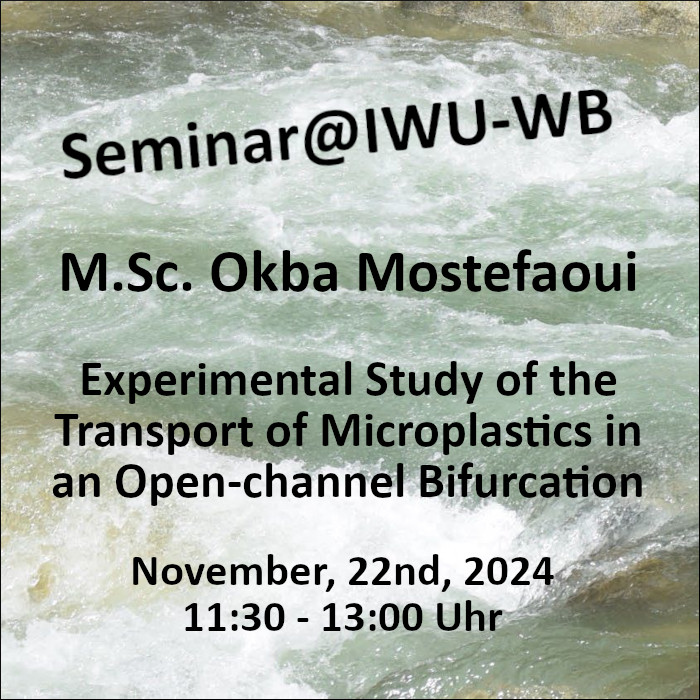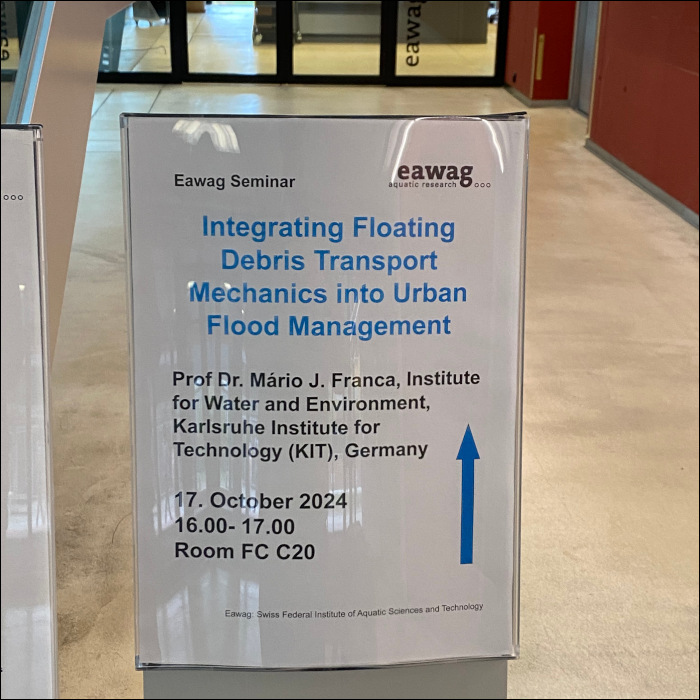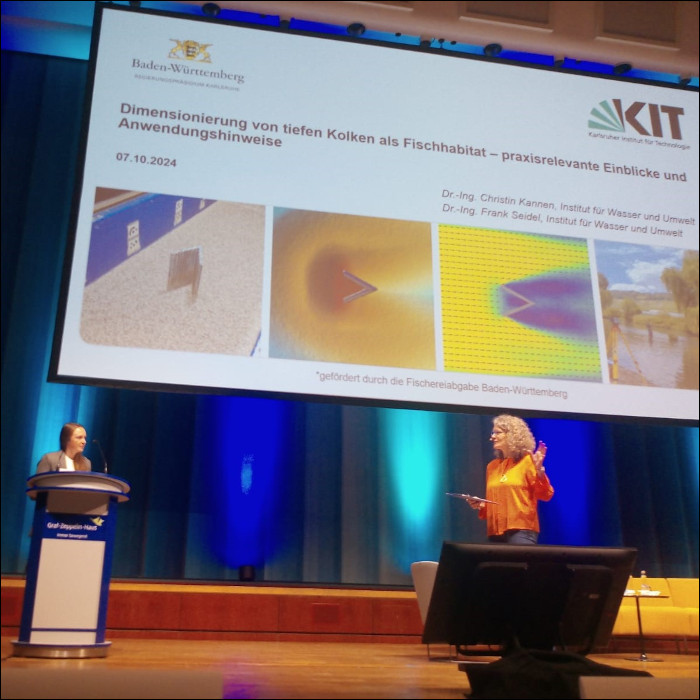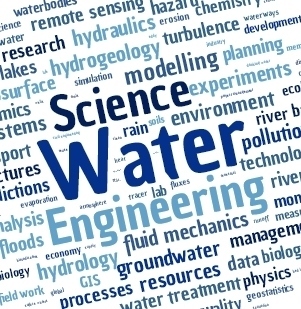Head:
Address:
Karlsruhe Institute for Technology (KIT)
Institute for Water and Environment
- Hydraulic Engineering and Water Resources Management -
Kaiserstrasse 12
76131 Karlsruhe
Phone: +49 (0)721 - 608-44418
Email: wasserbau∂iwu.kit.edu
Visiting address:
The challenges facing water managers and engineers nowadays are manifold, complex, and require cross disciplinary approaches. These challenges include the safety of hydraulic natural and built systems, ageing infrastructures, pollution, guarantee of energy and food security, sustainable development and safety of urban environment, ecological feedbacks and an uncertain future.
Our group develops research towards engineering solutions for the design, the planning and the implementation of sustainable water infrastructures prepared for global change. We investigate the mechanics of flowing water and its interaction with key elements of a river basin such as sediments, dissolved matter, gases, living organisms and people. More specifically, the group is committed to develop research on four main topics: sustainable and secure water for supply, food and energy; adaptive and multi-functional hydraulic systems; healthy rivers; and geophysical processes in rivers and lakes.

On November 6, 2024, a delegation from Tongji University (China) led by the President of the Tongji University Council, Prof. Fang Shouen, accompanied by Dr. Kirsten Hennrich and Mr. Oliver Schmidt from KIT, visited the Theodor Rehbock River Engineering Laboratory for future collaborations in water and environmental sciences.
During the visit, Mário Franca gave a brief introduction of the institute, the laboratory, some of the team's current projects and also our international Master’s programme. Jiangtao Yang presented his research on the physical degradation of wood in rivers.

Mário Franca and colleagues have published a commentary on the role of large debris in amplifying urban flood hazards, focusing on the recent Valencia floods in Spain.
The piece was featured on the blog of the Hydrological Sciences (HS) Division of the European Geosciences Union (EGU).
Read more here: https://blogs.egu.eu/divisions/hs/2024/11/06/floods-valencia-hazardous-debris/

Many end-of-life plastic products, particularly microplastic waste, manage to evade treatment and recovery systems end up in numerous aquatic environments. Urban areas are the main source of microplastic generation and pollution, with particles resulting from the fragmentation of plastic packaging, the abrasion of tyres on roads or shedding from synthetic clothing on washing machine drums.
The thesis's objective is to investigate the plastic microparticle transport mechanisms in a simplified system representative of a combined storm overflow—a bifurcation flow—using an experimental approach.
Link to the seminar PDF file
On 18 October, Mário Franca gave a seminar on “Integrating Floating Debris Transport Mechanics into Urban Flood Management“, at the EAWAG, the Swiss Federal Institute of Aquatic Science and Technology , in Dübendorf.
In his presentation, Mário shared share insights from IWU-WB research, including results on the transport of plastics in rivers, the inception of motion of large debris during floods, and the inception of motion and transport of urban litter caused by pluvial floods.
These findings ultimately contribute to better management strategies for urban floodwaters and mitigation of the environmental impacts of plastic pollution.
See the presentation video here
Link to the seminar
On October 8th, 2024, Christin Kannen presented the results of her dissertation on deep pool as fish habitat at the Vitale Gewässer conference in Baden-Württemberg.
She showed practical insights and application tips for the almost 300 participants from engineering companies, state administration and other public bodies who are committed to revitalization of rivers in BW.

One of the early press releases following the devastating flood in the Ahr Valley in 2021 stated: “Such an event could not have been predicted!” But is that really true?
Historical flood markers along our rivers suggest otherwise. If we have improved knowledge about flood risks, why do we still experience billions in damages and even fatalities, as seen in the Neckar catchment area and Bavaria in June 2024?
In his lecture, Dr.-Ing. Peter Oberle explored the possibilities and limitations of sustainable flood protection and precautionary measures.
Link to the presentation






